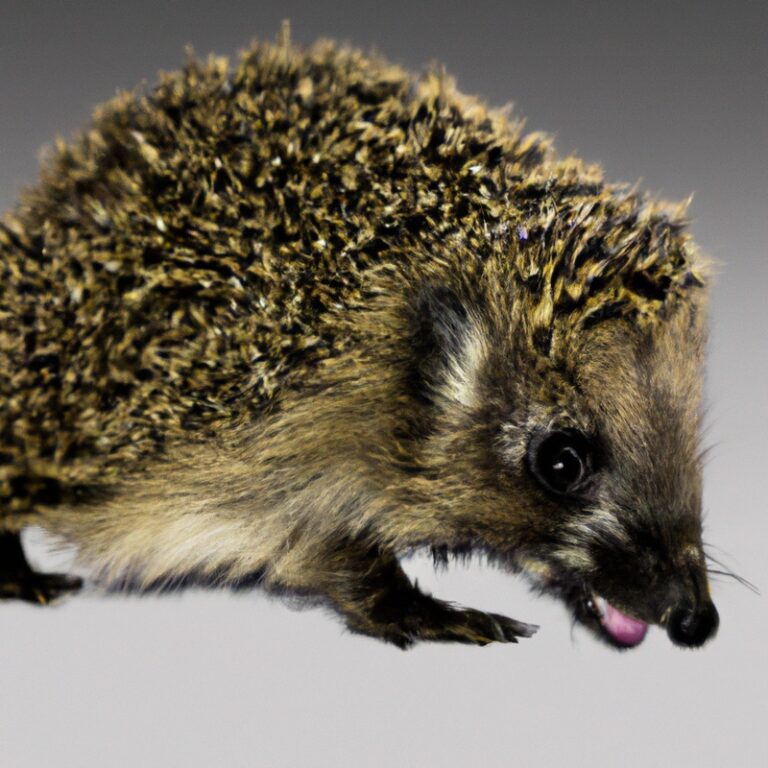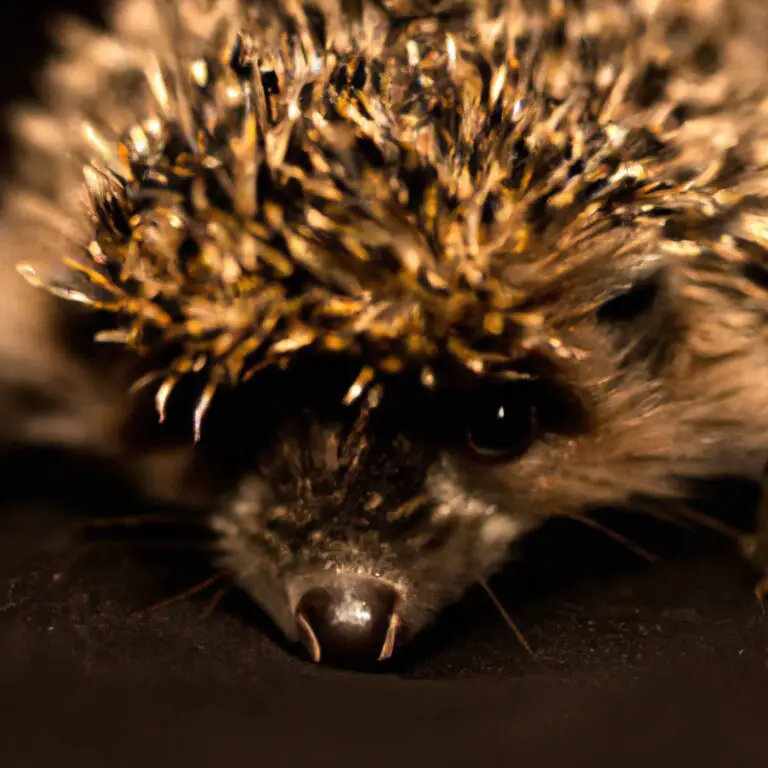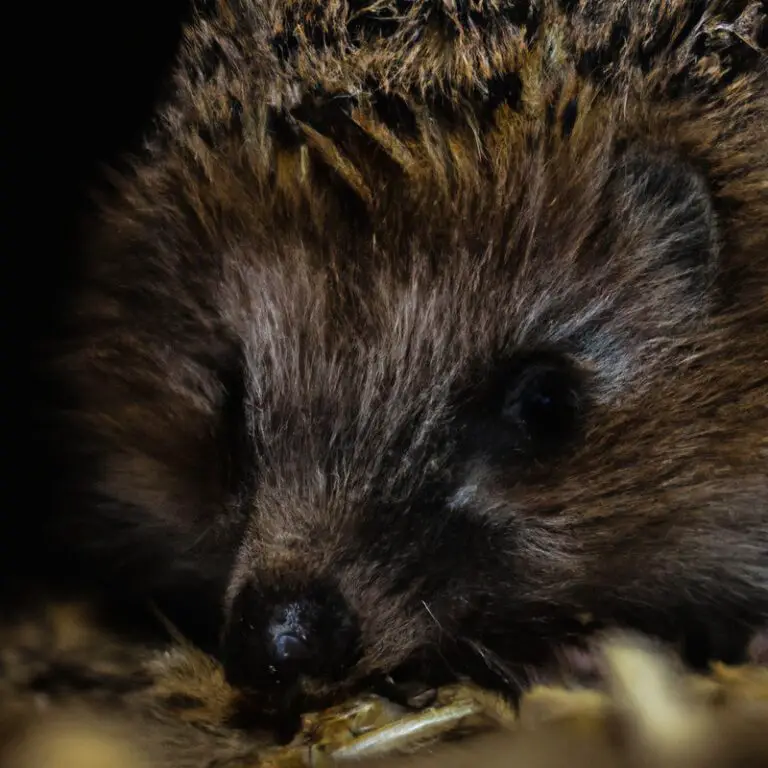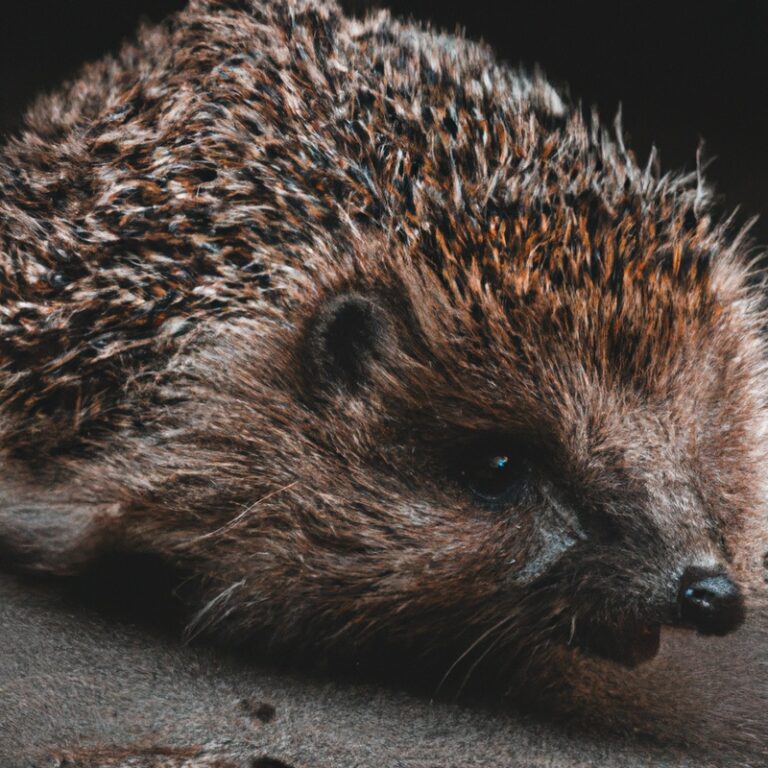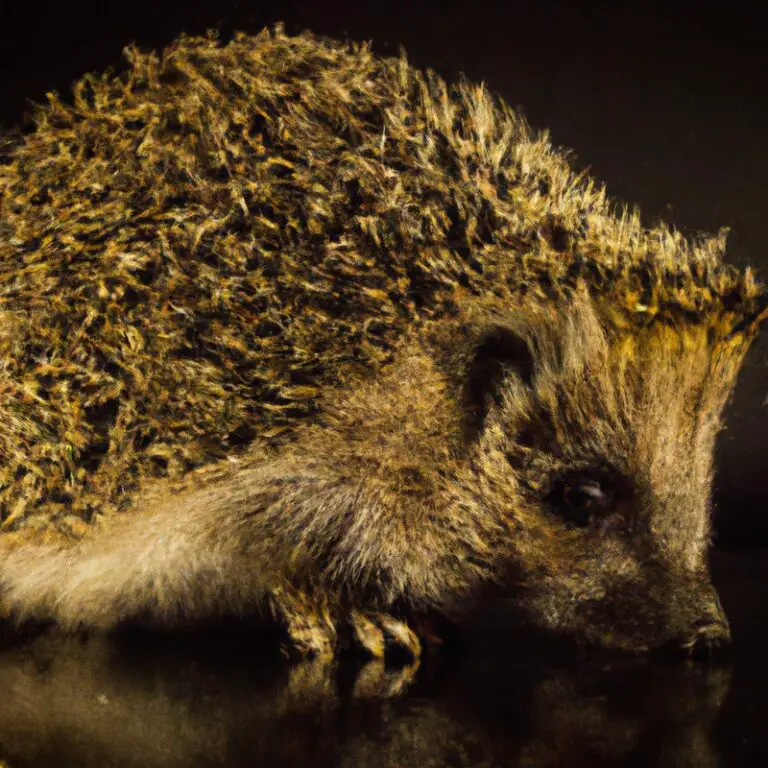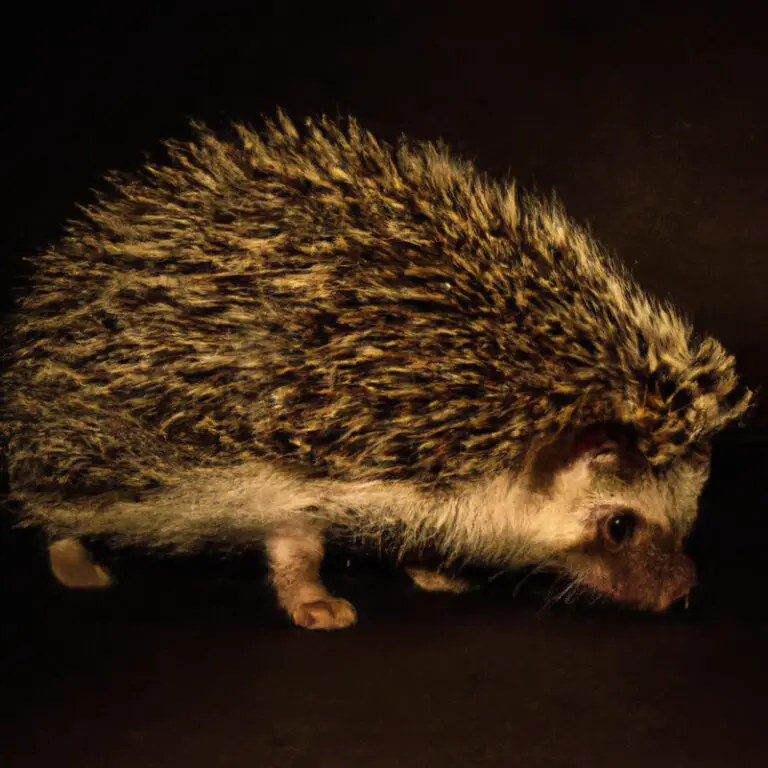How Do Hedgehogs Contribute To Pest Control?
Key Takeaways:
- Hedgehogs play a vital role in pest control by feeding on insects, slugs, and snails.
- Their diet helps keep garden pests in check, reducing the need for chemical pesticides.
- Hedgehogs can be encouraged to visit your garden by providing shelter, water, and food such as cat food or mealworms.
- Creating hedgehog-friendly habitats can contribute to ecological balance and the overall health of your garden.
Are you tired of dealing with those pesky pests wreaking havoc in your garden?
Well, have you ever considered enlisting the help of a prickly little friend?
Yes, that’s right – hedgehogs! These adorable creatures are not just cute and cuddly, but they also play a vital role in pest control.
Wondering how they do it?
From their natural predatory instincts to their skill in managing insect populations, hedgehogs are nature’s own pest control experts.
So, in this article, we’ll dive deep into the fascinating world of hedgehogs and explore how they contribute to keeping those unwanted critters at bay.
Get ready to be amazed by what these spiky superheroes can do!
| Hedgehogs | Pest Control |
|---|---|
| 1. Hedgehogs are natural predators of many garden pests such as slugs, snails, and insects. | 1. By consuming these pests, hedgehogs help to keep their populations in check, reducing the damage they can cause to plants and crops. |
| 2. Hedgehogs also eat small rodents like mice and voles, which can be considered pests in certain situations. | 2. By preying on these small rodents, hedgehogs help control their numbers and prevent infestations. |
| 3. Hedgehogs have a keen sense of smell and can detect the presence of pests, helping to locate and control infestations. | 3. Their ability to sniff out pests can guide gardeners and farmers to problem areas, allowing for targeted pest control measures. |
| 4. Hedgehogs are known to eat the eggs of certain pests, effectively disrupting their life cycles. | 4. By consuming eggs, hedgehogs can help prevent future generations of pests from hatching and causing damage. |
| 5. Hedgehogs create habitat diversity, attracting other beneficial organisms like beetles and birds that also contribute to natural pest control. | 5. The presence of hedgehogs in an ecosystem can enhance overall pest control efforts by attracting a range of other predators. |
Hedgehogs and their role in pest control
Hedgehogs play a vital role in pest control.
How do hedgehogs contribute to pest control?
Hedgehogs contribute to pest control by feeding on a variety of insects, slugs, and snails, which are considered common garden pests.
They have a natural ability to sniff out and consume these pests, helping to keep their populations in check.
Additionally, hedgehogs can eat eggs and larvae of certain insects, further reducing their numbers.
Their natural foraging behavior makes them valuable allies in maintaining a balanced ecosystem and reducing the need for chemical pesticides.

Hedgehogs as natural predators
Hedgehogs are natural predators, and their role in controlling pests is significant. They feed on a variety of insects, slugs, snails, and even small vertebrates like mice.
These spiky creatures use their sharp teeth and strong jaws to hunt and consume their prey.
By doing so, hedgehogs help to maintain a balanced ecosystem by controlling populations of pests that can damage crops and gardens. Their natural predation ultimately reduces the need for chemical pest control methods.
Hedgehogs and insect control
Hedgehogs play a vital role in insect control. These cute little creatures are natural predators of many garden pests, such as slugs, snails, beetles, and caterpillars.
They have a strong appetite for these insects, helping to keep their populations in check.
Hedgehogs are especially beneficial for gardeners and farmers as they can reduce the need for chemical pesticides. By providing a hedgehog-friendly habitat with shelter and food, you can encourage these helpful critters to visit your garden.
So, embrace the presence of hedgehogs and let them play their part in keeping your garden pest-free.
Hedgehogs and pest control in gardens
Hedgehogs play a valuable role in pest control in gardens.
These adorable creatures are natural predators for many common garden pests such as slugs, snails, beetles, and caterpillars.
By having hedgehogs in your garden, they help keep these pests in check without the need for harmful pesticides.
Providing a hedgehog-friendly environment with shrubs, bushes, and log piles can encourage them to make your garden their home.
So, if you want to reduce pests naturally, consider welcoming hedgehogs into your garden!

Benefits of hedgehogs in pest control
Hedgehogs provide an environmentally friendly and cost-effective solution for pest control. They help reduce the need for chemical pesticides.
Environmentally friendly pest control solution
Environmentally friendly pest control solutions focus on natural and sustainable methods to manage pests.
These methods include biological controls, such as introducing predator insects or animals, like ladybugs or ducks, to control pests in a natural way.
Additionally, implementing cultural practices, like proper sanitation and crop rotation, can help reduce pest populations.
Using organic and natural pest control products, such as neem oil or beneficial nematodes, is another eco-friendly option.
These approaches help protect the environment while effectively managing pests.
Cost-effective pest control option
Hedgehogs are a cost-effective pest control option for your garden or property. These adorable creatures have a natural diet that consists of insects, slugs, snails, and other pests that can damage plants and crops.
By simply providing a safe and welcoming environment for hedgehogs, you can encourage them to visit and help control the pest population.
Plus, hedgehogs are eco-friendly and don’t require any additional maintenance or expensive solutions. It’s a win-win situation for both you and the hedgehogs!
Reduction of chemical pesticide use
One way hedgehogs contribute to pest control is by reducing the need for chemical pesticides. Hedgehogs have a natural diet that includes insects, slugs, and other pests that can damage crops and gardens.
By allowing hedgehogs to roam freely, they can help keep pest populations in check, reducing the reliance on chemical pesticides.
This not only benefits the environment but also promotes a healthier ecosystem. Additionally, using fewer chemicals can also help protect other beneficial organisms and pollinators.
So, having hedgehogs around can be a natural and effective way to control pests without resorting to chemical pesticides.
Factors affecting hedgehogs’ ability to control pests
Habitat loss, predators, and climate change can all impact hedgehogs’ ability to control pests effectively.
Habitat loss and its impact on hedgehogs
Habitat loss has a significant impact on hedgehogs. When their natural habitats, such as woodlands, hedgerows, and gardens, are destroyed or fragmented, hedgehogs struggle to find suitable places to live and forage for food.
This can lead to a decline in their population.
Deforestation, urbanization, and agricultural practices are some of the factors contributing to habitat loss for hedgehogs. Protecting and enhancing their habitats is crucial to ensure their survival and their ability to control pests naturally.
Predators and threats to hedgehogs
Hedgehogs face a number of predators and threats in their environment. Some common predators include foxes, badgers, and domesticated cats that may prey on hedgehogs.
Additionally, birds of prey such as owls and hawks can pose a threat to hedgehogs, particularly the younger ones.
Other threats arise from human activities, like habitat loss due to urbanization and the use of pesticides that can directly harm hedgehogs or reduce their food sources. Road traffic accidents also pose a significant risk to hedgehogs.
Protecting hedgehogs from these predators and threats is important to ensure their survival in the wild.
Climate change and its effect on hedgehog populations
Climate change is having significant impacts on hedgehog populations.
Rising temperatures and changing weather patterns can disrupt their hibernation cycles, making it harder for them to survive the winter.
Additionally, extreme weather events like floods and droughts can destroy their habitats and reduce their food supply.
These changes are putting hedgehog populations at risk and threatening their ability to control pests in ecosystems.
Conservation efforts are crucial to mitigate the effects of climate change and protect these important creatures.
Ways to attract hedgehogs for pest control
To attract hedgehogs for pest control, create hedgehog-friendly habitats and provide food and water sources.
Creating hedgehog-friendly habitats
To create hedgehog-friendly habitats, you should provide shelter, food, and safe areas for nesting.
Here are some key steps:
- Leave areas of your garden wild with dense vegetation for hedgehogs to forage and hide.
- Build or purchase hedgehog houses to provide shelter.
- Make sure there is access to fresh water by placing shallow dishes in your garden.
- Avoid using pesticides and chemicals in your garden, as they can harm hedgehogs.
- Create small entry points in fences or walls to allow hedgehogs to move freely.
- Remove hazards like netting and litter from your garden to help keep hedgehogs safe.
Providing food and water sources for hedgehogs
To attract hedgehogs for pest control, providing food and water sources is essential. You can set up a shallow dish of clean water in a quiet area to quench their thirst.
Hedgehogs primarily eat insects, so offering a diverse range of insects like mealworms, slugs, and beetles can provide them with a rich food source.
Additionally, planting native plants can attract insects, which in turn will attract hedgehogs. Avoid using pesticides in your garden to keep the insects and hedgehogs safe.
Avoiding the use of harmful chemicals in gardens
To avoid using harmful chemicals in your garden, consider these eco-friendly alternatives:
- Organic pest control: Use natural methods like introducing beneficial insects, such as ladybugs or lacewings, to control pests.
- Companion planting: Select plants that naturally repel pests or attract beneficial insects. For example, planting marigolds near vegetables can deter aphids.
- Manual removal: Handpick weeds and pests instead of relying on chemical herbicides or pesticides.
- Mulching: Apply a layer of mulch around plants to suppress weeds, conserve moisture, and reduce the need for chemical weed killers.
- Proper watering and fertilization: Maintain a healthy growing environment by watering adequately and using organic fertilizers to promote strong plant defenses.
Remember, avoiding harmful chemicals not only protects the environment but also creates a safer space for beneficial insects and wildlife in your garden.
Frequently Asked Questions about hedgehogs and pest control
Can hedgehogs control all types of pests?
Hedgehogs are beneficial for controlling certain pests, but they cannot control all types of pests. They primarily eat insects, slugs, and snails, which can help keep populations of these pests in check.
However, hedgehogs are not effective against rodents, such as mice and rats, or larger pests like squirrels.
If you’re looking to address specific pest problems, it’s important to consider a combination of methods that may include hedgehogs as part of an integrated pest management strategy.
How many hedgehogs are needed for effective pest control?
To effectively control pests, a single hedgehog can make a difference in your garden.
They have a voracious appetite for insects, slugs, and snails, which are common garden pests.
However, the number of hedgehogs needed depends on the size of the area and severity of the infestation.
For small gardens, one hedgehog may be sufficient.
Larger gardens or areas with a high pest population may benefit from having multiple hedgehogs.
It’s important to create a hedgehog-friendly environment to attract and support their presence.
What other benefits do hedgehogs provide?
Hedgehogs provide a range of benefits in addition to pest control.
- Garden helpers: Hedgehogs eat slugs, snails, and insects that can damage plants, helping to keep gardens healthy and pest-free.
- Ecological balance: By consuming pests, hedgehogs contribute to maintaining the balance of the local ecosystem, reducing the need for chemical pesticides.
- Seed dispersal: Hedgehogs also aid in seed dispersal. As they move around, seeds can become attached to their spines or fur and be carried to new places, aiding in plant propagation.
- Education and awareness: These spiky creatures serve as educational ambassadors, fostering curiosity and awareness about wildlife conservation and the importance of coexisting with nature.
Overall, the presence of hedgehogs can have numerous positive impacts on both our gardens and the wider environment.
Final Verdict
Hedgehogs play a crucial role in pest control by acting as natural predators that feed on a variety of garden pests, such as insects, slugs, and snails. Their presence in gardens helps to maintain a healthy balance in the ecosystem and reduces the need for chemical pesticides.
However, factors such as habitat loss, predators, and climate change can impact hedgehog populations and their ability to control pests.
To attract hedgehogs for pest control, creating hedgehog-friendly habitats, providing food and water sources, and avoiding harmful chemicals in gardens are essential. By embracing hedgehogs as an environmentally friendly and cost-effective pest control option, we can not only protect our gardens but also support the conservation of these endearing creatures.


